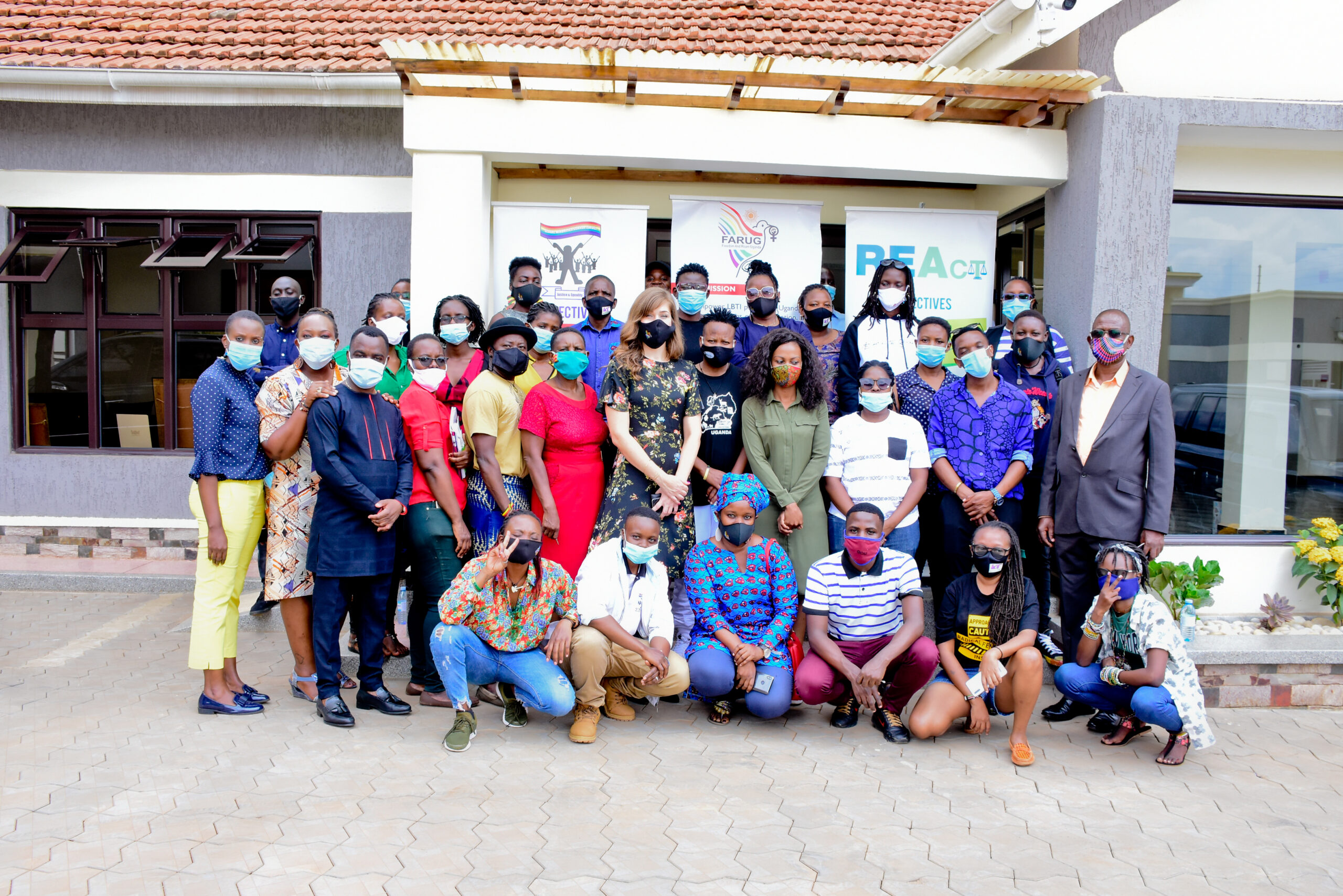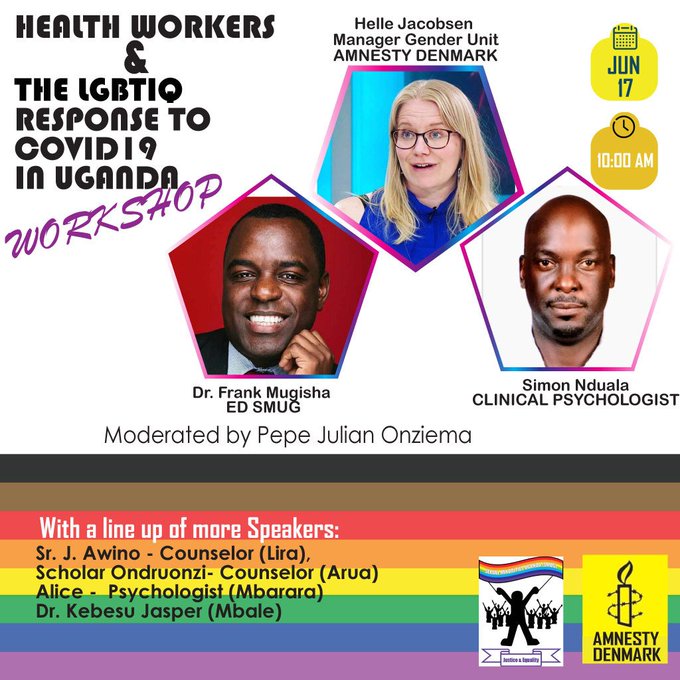Sexual Minorities Uganda-SMUG, Executive Director Dr Frank Mugisha calls upon the communications persons within SMUG membership organizations to work together to amplify the LGBTIQ voice in Uganda through the use of social media. He was speaking at a two day communications training held in Kampala organized by SMUG in a bid to fill up the existing media gap due to the fact that local media was banned from documenting and publishing stories about LGBTIQ people in Uganda. There is no information on this particular Key Population broadcasted on radios, TVs and newspapers making it seem like LGBTI persons do not exist in the country, yet discrimination and persecution of LGBTIQ persons in Uganda continue on a daily basis.
The training serves as a tool to unite individuals that share sensitive information about LGBTIQ persons in Uganda. We receive lots of backlash especially on social media where people write hate speech and even threaten to physically harm LGBTIQ persons. This hate speech and misconception can be combated when communications officers under SMUG membership organizations get together as a voice for the LGBTIQ people and design social media campaigns that will inform the mostly homophobic society about our lives. Social media can be used as a great space that we can utilize to inform our community members about where they can access inclusive basic needs that like health care and legal aid.
While facilitating a session, SMUG Programs Director Pepe Julian Onziema urged the participants to make use of good high resolution photos and videos. He said it is important to mind about community members consent when taking their photos and videos so as not to expose those who are not out, adding that this could lead to serious negative consequences.
Keem Love a trans-woman and one of the facilitators said “It is possible for all the participants here to change the negative narrative of LGBTIQ people on social media, harness the attention and turn it to our advantage and advocate for equality.” She spoke about how she ventured into social media activism. “My friend a trans-woman died of HIV in Mulago hospital, all the interns there wanted to experiment on her body, they wondered how someone can be a trans-woman. Unfortunately the doctors at this government facility kept on looking at my friend’s file and dropping it back on the doctor’s tray, saying……that file is for the gay boy. That is when I realized that there’s need to sensitize people about trans-women and the only space I could use is social media. I got a lot of negative comments with some even threatening to physically harm me. At first I’d respond to their insults but with time I stopped answering them back. Eventually some people accepted me and the now refer to me as sister. This social media family that embraced me is the one that fights for me when people insult me about my gender identity.”
Two days after training the participants took part in an online campaign aimed at beginning a conversation about Intimate Partner Violence-IPV. We will continue engaging communications persons on individual basis and hopefully our participants will become a voice to recon with.




